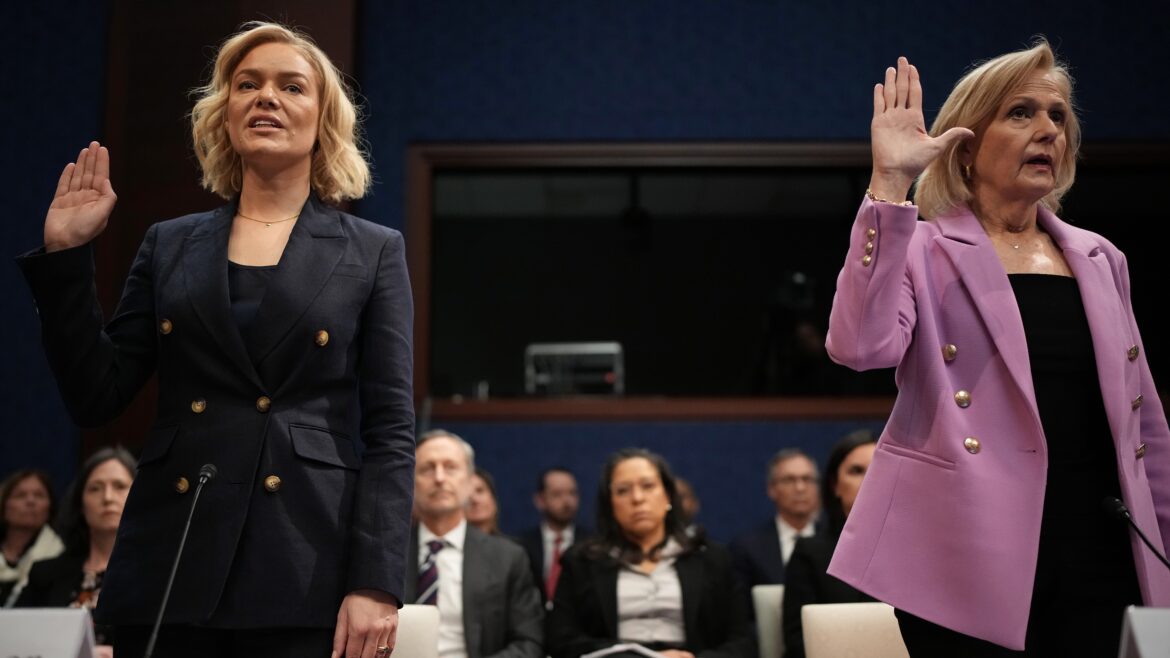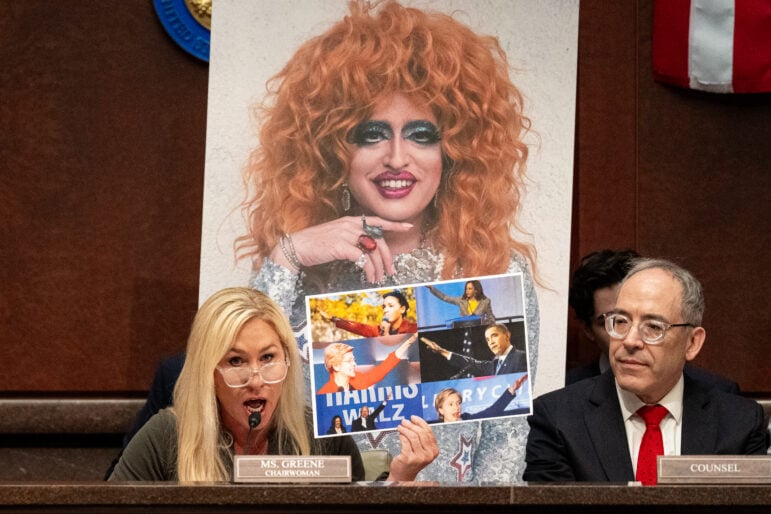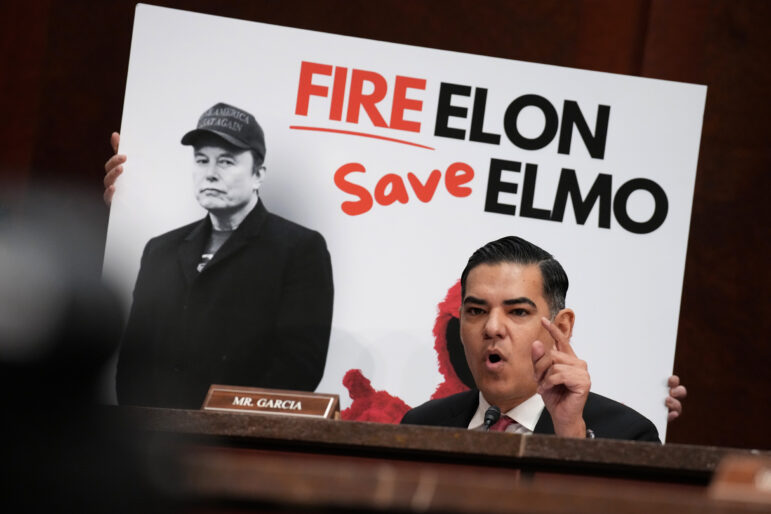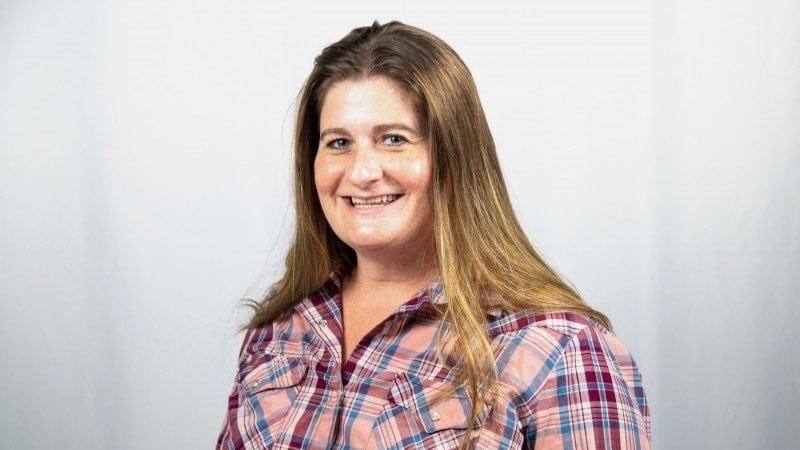Rep. Greene calls for defunding CPB at end of hearing with pubmedia leaders

Andrew Harnik / Getty Images
NPR CEO Katherine Maher and PBS CEO Paula Kerger are sworn in before a House Oversight and Government Reform Committee hearing at the U.S. Capitol Wednesday in Washington, D.C.
A congressional hearing with the CEOs of NPR and PBS Wednesday ended with a call from the subcommittee’s chair to defund CPB.
“The Corporation for Public Broadcasting is using taxpayer dollars to actively suppress the truth, suppress diverse viewpoints, and produce some of the most outlandish, ludicrous content,” said Rep. Marjorie Taylor Greene (R-Ga.). “After listening to what we’ve heard today, we will be calling for the complete and total defund and dismantling of the Corporation for Public Broadcasting.”

Her comments concluded a House Subcommittee on Delivering on Government Efficiency hearing at which NPR CEO Katherine Maher and PBS CEO Paula Kerger answered questions about their networks’ content, Maher’s past public comments and criticism from former NPR editor Uri Berliner.
Alaska Public Media CEO Ed Ulman and Michael Gonzalez, a senior fellow at the Heritage Foundation, also testified during the hearing, dubbed “Anti-American Airwaves: Holding the heads of NPR and PBS Accountable.”
Rep. Stephen Lynch (D-Mass.) said during the hearing that he was sad to see the committee stoop to the “lowest levels of partisanship and political theater to hold a hearing to go after the likes of Elmo and Cookie Monster and Arthur the Aardvark, all for the unforgivable sin of teaching the alphabet to low-income families’ children and providing accessible local news and programming.”

Kerger was asked about PBS programming, including Real Boy, an Independent Lens documentary about a transgender teenager.
“That was a documentary that was produced for adults as part of our prime-time audience, and it was part of a point of view that we share to try to help people understand the wide breadth of experiences of people across the country,” Kerger said.
Other questions focused on Berliner’s essay, published by The Free Press last April, in which he claimed that he found 87 Democrats and no Republicans in NPR’s D.C. newsroom.
“Eighty-seven to zero and you’re not biased?” asked Rep. Jim Jordan (R-Ohio).
“I think that is concerning if those numbers are accurate,” Maher said.
“It wasn’t 44-43, it wasn’t 60-27, it wasn’t 70-17, it wasn’t even 80 to 7,” Jordan said. “It was 87 Democrats, zero Republicans, and you say, ‘NPR is not biased.’”
Maher also acknowledged that she and NPR’s current editorial leadership believes its approach to the Hunter Biden laptop story was a “mistake.” Berliner cited the network turning “a blind eye” to the story in his essay.
Maher also addressed a question from Rep. Tim Burchett (R-Tenn.) about tweets written before she joined NPR in which she called President Donald Trump a fascist and a racist.
“I regret those tweets,” Maher said. “I would not tweet them again today. They represented a time where I was reflecting on something that I believe that the President had said rather than who he is. I don’t presume that anyone is a racist.”
At another point in the hearing, Rep. Jasmine Crockett (D- Texas) asked Ulman about rural communities lacking access to life-saving information and public safety alerts without public media stations.
“So in your opinion, would eliminating funding for stations in rural America like WNGH channel 18 in the chairwoman’s district hurt Americans?” Crockett asked, referring to a Georgia Public Broadcasting TV station in Chatsworth.
“It would hurt Americans, yes,” Ulman said.
Crockett also asked Maher to confirm that she did not work for NPR when she made statements brought up in the hearing.
“To be clear, free speech is not about whatever it is that y’all want somebody to say, and the idea that you want to shut down everybody that is not Fox News is bulls—,” Crockett said. “We need to stop playing, because that’s what y’all are doing in here. You don’t want to hear the opinions of anybody else.”







